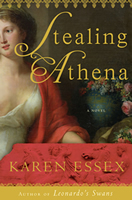Hi Kelly,
I think the way the relationship between Claire and the kidnapper unfolds is very interesting, but I won’t say too much more than that so as not to spoil it for other readers. I’m intrigued, however, by what you say about research bogging down the writing. I can think of books I’ve read where that happens, and as I’m reading I think: “The author did a ton of research for this book, and I can see he’s not going to waste one bit of it – he’s going to squeeze every last detail he found into this book!” There’s one book in particular that made me feel that way. It was, in fact, a huge bestseller, so perhaps not everyone was as troubled by his pedantry as I was… But I digress!
Your comment makes me want to ask you about what other kinds of things, in your opinion and experience, other than too much research, weigh down the writing process? And, conversely, what buoys it up?
Thanks!
Lynn

